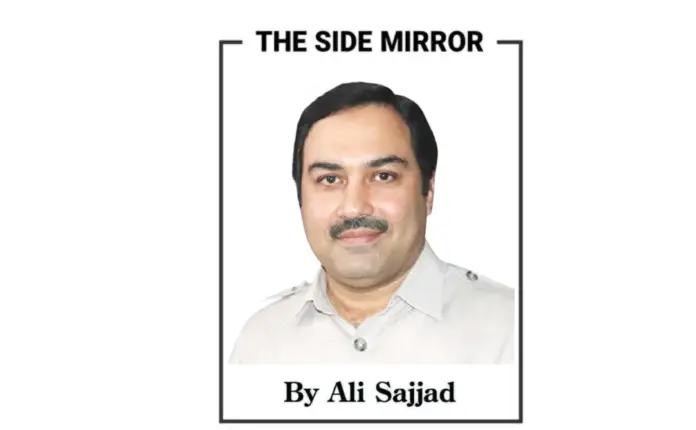Away from the Russia-Ukraine shelling points, and border areas crowded with stranded families, another fierce war is being fought in cyberspaces and newspaper pages. This war, often called propaganda war, has brought out the ugliest face of the violence. This war is racist. This war is ethnic. This war kills the truth.
The clip of Charlie D’Agata of US network CBS News is doing the rounds: “This isn’t a place – with all due respect, you know – like Iraq or Afghanistan that has seen conflict raging for decades…this is a relatively civilised, relatively European – I have to choose those words carefully too – city where you wouldn’t expect that or hope it is going to happen.” As the broadcaster utters these lines, newscasters remain emotionless, motionless and unmoved.
After speaking his mind, D’Agata has apologised for his, what calls, “poor choice of words”. But many other fronts have yet to concede their unethical practices, as they continue blaring on racist ammunitions not limited to the war zone.
The reaction pouring on in the wake of the invasion of Ukraine by Russia shows that blood in some parts of the world is relatively more precious than other parts of the world.
Last Saturday, the BBC did its part of CBS. The news channel had Ukraine’s former deputy prosecutor general David Sakvarelidze on air.
He said, “It’s very emotional for me because I see European people with blonde hair and blue eyes being killed every day with Putin’s missiles and his helicopters and his rockets.”
The BBC presenter had lots of respect for Sakvarelidze.
“I understand and of course respect the emotion.”
Come on, BBC people, please try not to differentiate between the blood of blondes and helpless Palestinians and Afghans.
Journalistic objectivity has become the gravest causality of the war.
Earlier on Friday, a CNN presenter said in a remorseful tone that Kyiv was the only European capital which had seen such a damage in almost a century. Someone should give the presenter a history lesson on the damage and siege of Sarajevo, which remained under siege and bloodbath from April 1992 to February 1996. Sorry to say, the media has selective memory and perception.
Just like media’s biased treatment, the countries are biased to the colours and bloodline of refugees. A French TV presenter was caught as saying, “We’re not talking here about Syrians fleeing the bombing of the Syrian regime backed by Putin, we’re talking about Europeans leaving in cars that look like ours to save their lives.”
The racist war is not confined to the studios of the UK and the US. In our backyard, Al Jazeera English committed the same sin and later offered an apology. On Sunday, Al Jazeera presenter Peter Dobbie called Ukrainians stranded at border points as “prosperous, middle-class people who are not obviously refugees trying to get away from areas in the Middle East that are still in a big state of war; these are not people trying to get away from areas in North Africa, they look like any European family that you would live next door to”.
These are also insensitive, and irresponsible remarks.
The bitter reality, however, is that every country, every region welcomes or refuses refugees on the basis of their origin. But the media’s job is to point out such discrepancies, and not fan them.







